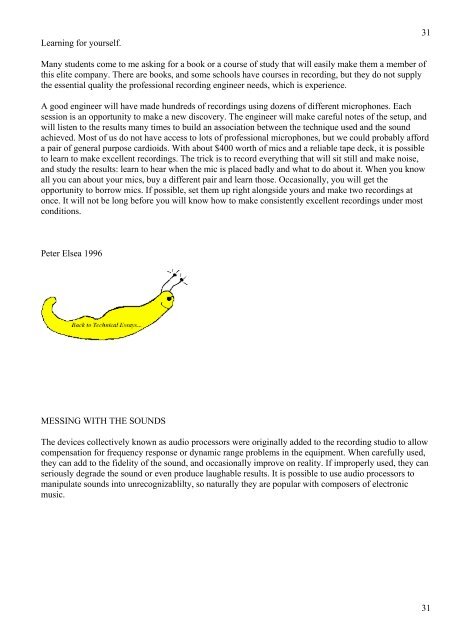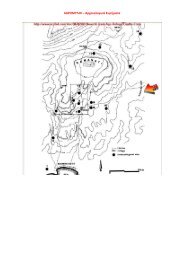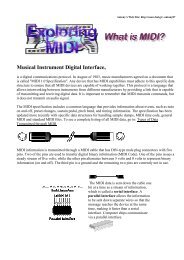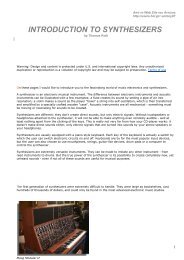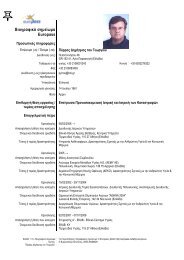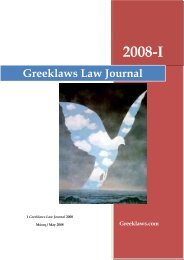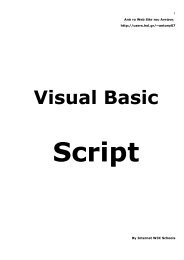Recording Handbook - Hol.gr
Recording Handbook - Hol.gr
Recording Handbook - Hol.gr
Create successful ePaper yourself
Turn your PDF publications into a flip-book with our unique Google optimized e-Paper software.
Learning for yourself.<br />
Many students come to me asking for a book or a course of study that will easily make them a member of<br />
this elite company. There are books, and some schools have courses in recording, but they do not supply<br />
the essential quality the professional recording engineer needs, which is experience.<br />
A good engineer will have made hundreds of recordings using dozens of different microphones. Each<br />
session is an opportunity to make a new discovery. The engineer will make careful notes of the setup, and<br />
will listen to the results many times to build an association between the technique used and the sound<br />
achieved. Most of us do not have access to lots of professional microphones, but we could probably afford<br />
a pair of general purpose cardioids. With about $400 worth of mics and a reliable tape deck, it is possible<br />
to learn to make excellent recordings. The trick is to record everything that will sit still and make noise,<br />
and study the results: learn to hear when the mic is placed badly and what to do about it. When you know<br />
all you can about your mics, buy a different pair and learn those. Occasionally, you will get the<br />
opportunity to borrow mics. If possible, set them up right alongside yours and make two recordings at<br />
once. It will not be long before you will know how to make consistently excellent recordings under most<br />
conditions.<br />
Peter Elsea 1996<br />
MESSING WITH THE SOUNDS<br />
The devices collectively known as audio processors were originally added to the recording studio to allow<br />
compensation for frequency response or dynamic range problems in the equipment. When carefully used,<br />
they can add to the fidelity of the sound, and occasionally improve on reality. If improperly used, they can<br />
seriously de<strong>gr</strong>ade the sound or even produce laughable results. It is possible to use audio processors to<br />
manipulate sounds into unrecognizablilty, so naturally they are popular with composers of electronic<br />
music.<br />
31<br />
31


